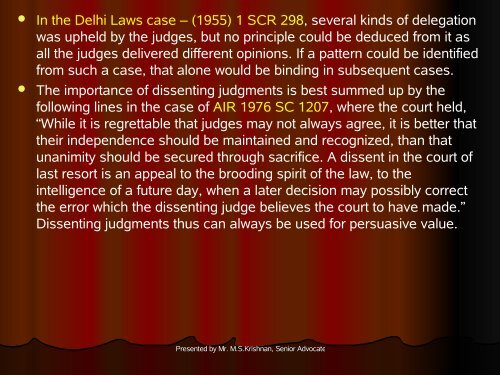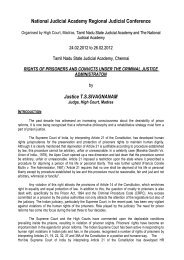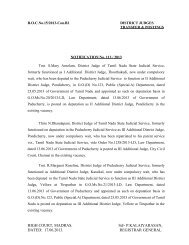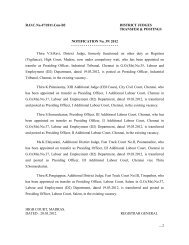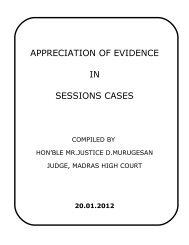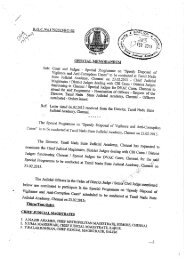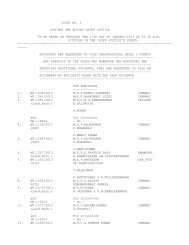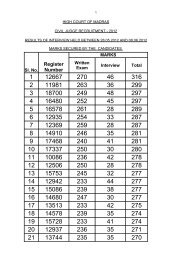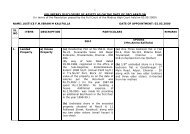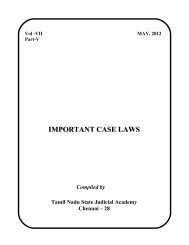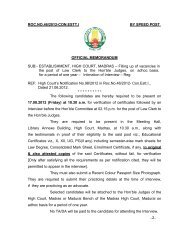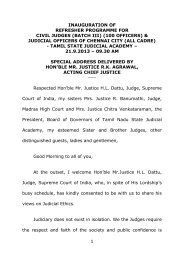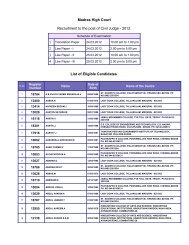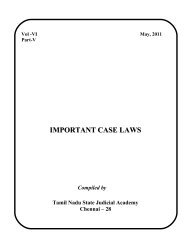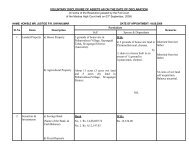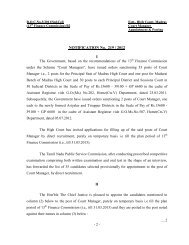LAW OF PRECEDENTS - Madras High Court
LAW OF PRECEDENTS - Madras High Court
LAW OF PRECEDENTS - Madras High Court
You also want an ePaper? Increase the reach of your titles
YUMPU automatically turns print PDFs into web optimized ePapers that Google loves.
In the Delhi Laws case – (1955) 1 SCR 298, several kinds of delegation<br />
was upheld by the judges, but no principle could be deduced from it as<br />
all the judges delivered different opinions. If a pattern could be identified<br />
from such a case, that alone would be binding in subsequent cases.<br />
The importance of dissenting judgments is best summed up by the<br />
following lines in the case of AIR 1976 SC 1207, where the court held,<br />
“While it is regrettable that judges may not always agree, it is better that<br />
their independence should be maintained and recognized, than that<br />
unanimity should be secured through sacrifice. A dissent in the court of<br />
last resort is an appeal to the brooding spirit of the law, to the<br />
intelligence of a future day, when a later decision may possibly correct<br />
the error which the dissenting judge believes the court to have made.”<br />
Dissenting judgments thus can always be used for persuasive value.<br />
Presented by Mr. M.S.Krishnan, Senior Advocate


